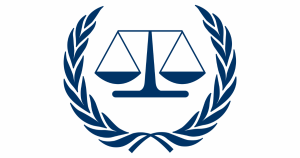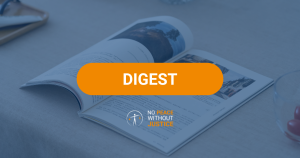Quito, 31 March 2020
– Read the original statement in Spanish
Consideirng
- The COVID-19 emergency, with the high number of deaths and contagions all over the world;
- The double vulnerability which we, as indigenous peoples face;
- The lack of specific protocols to face the emergency, given that States who are in charge have not taken responsibility to develop such instruments;
- That we, as indigenous peoples, recognise ourselves in the following Human Rights instruments: UDHR, ILO Convention 169, UNDRIP, ADRIP ;
- That COICA, gathers indigenous people from 9 amazonia countries, for the defense of their human rights, ancestral lands and traditional lifestyle in a holistic relationship with nature, in an area with the highest biodiversity in the world;
- That indigenous peoples’ rights are being constantly violated, not only by illegal extractivist and corporate activities, but also by the States who should be in charge of their protection – and the fact that State promote the very extractivist activities they should ban;
- That, despite and adding up to the current pandemic, the threats linked to abusive use of land continue, and corporate actors ignore the lockdowns imposed by governments and continue damage ancestral territories;
- That the human rights violations perpetrated against indigenous peoples have long been denounced by peoples from all over the COICA countries, to raise awareness worldwide and at national, regional and international institutions;
- That the right to a traditional way of life, as well as the right to consultation and participation, have not been effectively protected, given that 3 of the 9 COICA countries have not ratified ILO Convention 169;
- That the contribution of indigenous people to the preservation of global climate stability has been scientifically recognised, and that this contribution starts with the protection of collective rights on ancestral lands and natural resources, fundamental for a sustainable resource management and for forest preservation;
- That the only safe space for the COICA peoples is their own ancestral land and their communities, and States have not effectively progressed towards land demarcation.
For all of this, we urge:
- The governments of the Amazon basin to take urgent protective measures for indigenous peoples under their jurisdiction, including prevention and information campaigns in indigenous language and strengthening the public health systems;
- Our governments to publicly recognise their responsibility towards their indigenous populations, as one of the most vulnerable groups, and to take all the necessary and culturally appropriate measures to protect these communities and territories; in case this is not implemented, we urge the international community to stay alert;
- The OHCHR and the UN SR on indigenous peoples to speak up about the historical lack of access to the right to health for indigenous peoples;
- The UN and the Human rights institutions, as well as the international community, to stand in solidarity and keep alert, as well as contribute by helping the local indigenous networks in providing the necessary care and services;
- To establish an effective task force in collaboration with indigenous leaders to work for the holistic health of indigenous communities;
- To guarantee the right to food by allowing access to natural resources, protecting such resources from abusive use from third parties;
- Our governments to intensify monitoring and protection activities, especially to prevent illegal extractive activities – governments should give priority to the rights of indigenous people living in those territories and to their rights to self-determination;
- We urge the citizens all over the world to create solidarity networks to help usface the crisis, in the countryside as well as in cities;
- We thank the health staff, the scientic community, the farmers and all who work everyday to provide us with resources and solutions to overcome this crisis.




